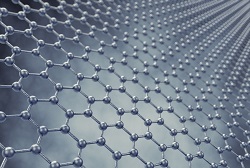The European Commission has doubled the size of a €1 billion research project aiming to unlock longer battery lives and flexible smart devices.
The Graphene Project aims to unlock the commercial potential of the ultra thin carbon. According to the EC, it is 200 times stronger than steel, six times lighter and boasts 70 times higher electron mobility than silicon.
It is hoped that graphene could be used to build bendable and lighter smartphones and laptops, help provide ultra-fast broadband and build batteries that can be solar charged within minutes and which are also lighter and more energy efficient.
Other potential uses are lighter and more energy efficient vehicles, new water filtration technologies and an alternative to rare materials.
Sixty-six new partners have joined the project, following a €9 million competitive tender, with the bulk of the new entrants to the project comprising universities and research institutes.
There are now 142 partners across 23 countries, with Italy and Germany leading the way with 23 organisations involved.
Professor Andrea Ferrari, Director of the Cambridge Graphene Centre and Chair of the Executive Board of the Graphene Flagship said: “This adds strength to our unprecedented effort to take graphene and related materials from the lab to the factory floor, so that the world-leading position of Europe in graphene science can be translated into technology, creating a new graphene-based industry, with benefits for Europe in terms of job creation and competitiveness.”
The Graphene Project will last until 2020 and is part of the wider Future and Emerging Technologies Flagship project, which aims to encourage research in a bid to deliver new products and services for citizens of the European Union.



